Manitowoc school board candidates on Success for All curriculum, funding, student behavior and more
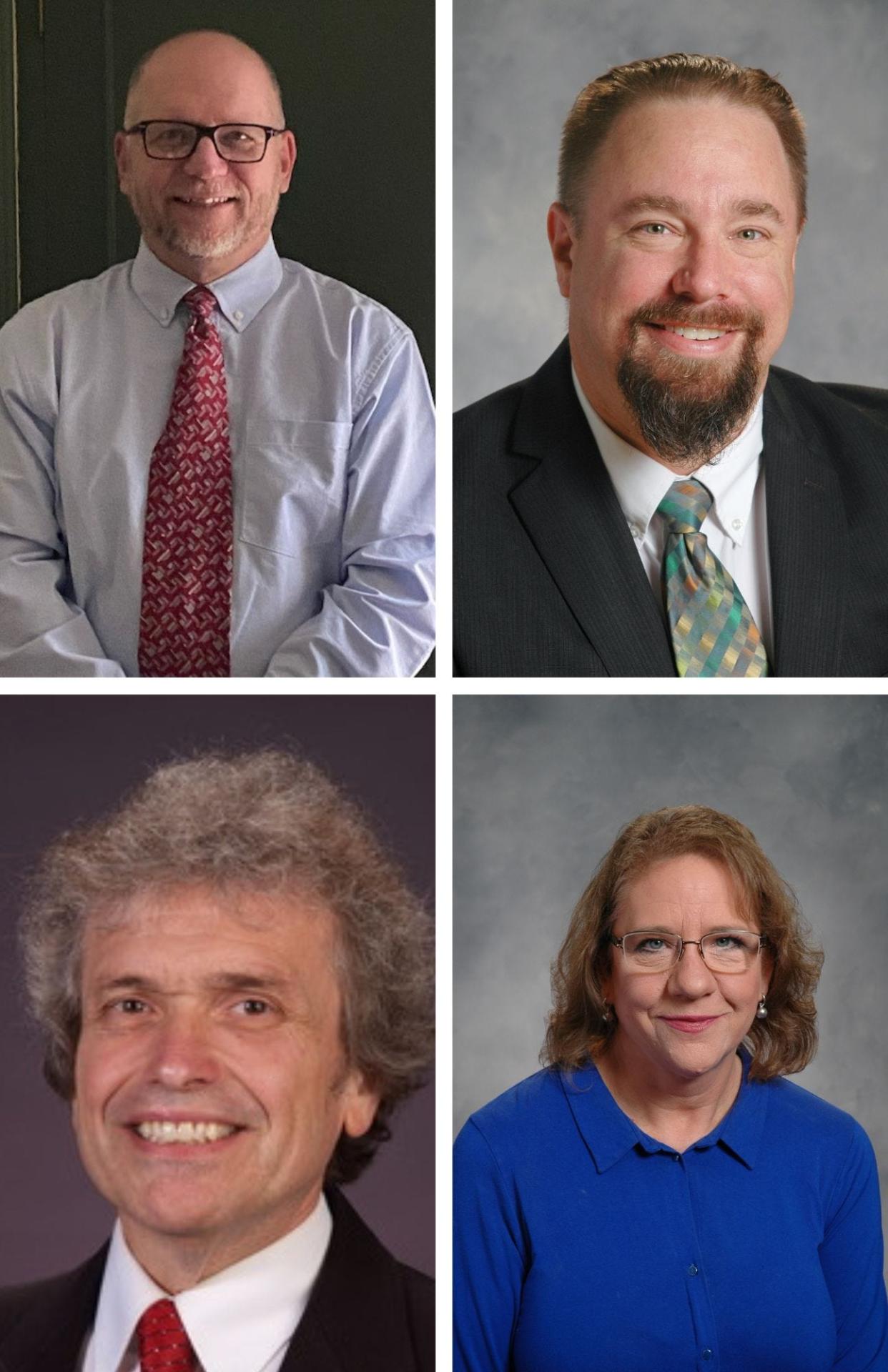
MANITOWOC - Christopher Able, Collin Braunel, Paul "Biff" Hansen and Kathy Willis are competing for two seats on the Manitowoc school board in the upcoming spring election.
The seats are at-large, meaning representatives can live anywhere in the school district and represent the area as a whole instead of being separated into smaller portions.
The Herald Times Reporter asked all candidates to fill out a questionnaire before the election explaining why they are running and their positions on issues. Here are their responses. Some responses are edited for clarity and brevity.
For more about registering to vote and polling locations, visit myvote.wi.gov.
Christopher Able
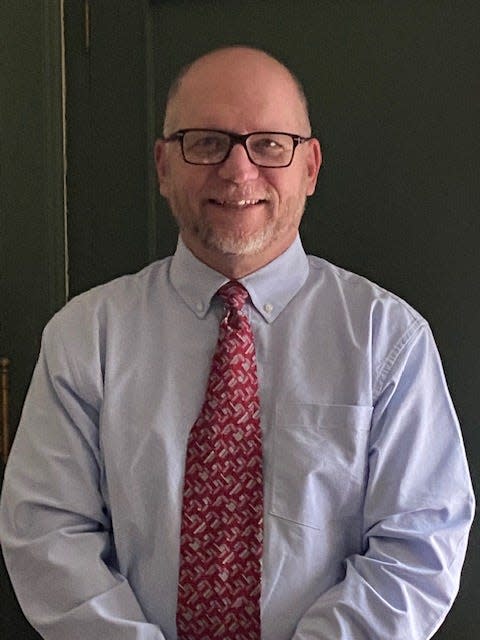
Age: 63
Occupation: Retired
Highest education level: Post Baccalaureate
Relevant experience: Classroom teacher in the Manitowoc Public School District, alderman, numerous boards, committees, and commissions in Manitowoc (available at www.able.vote), current president of the Board of Trustees for Manitowoc Public Library
Collin Braunel
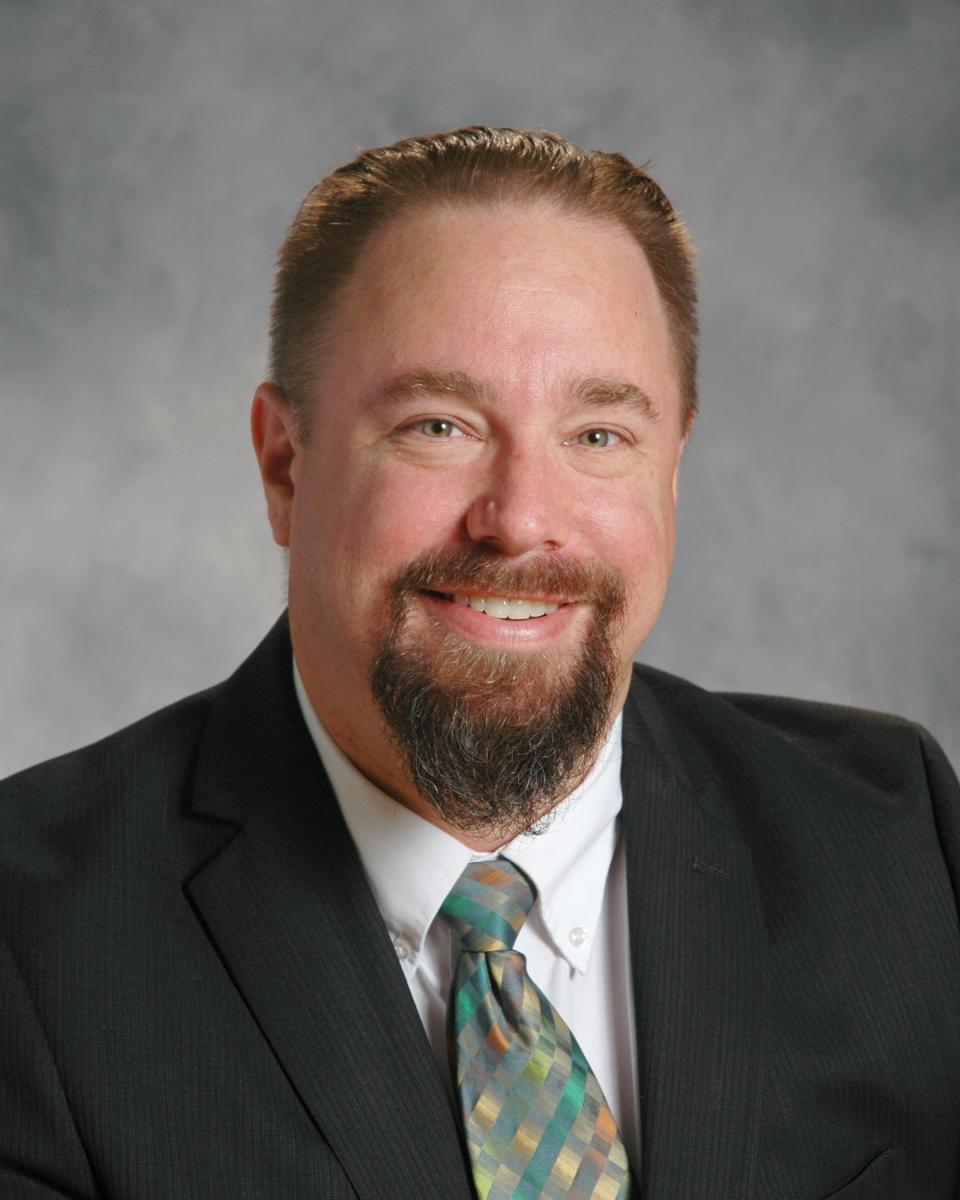
Age: 42
Occupation: Insurance agent
Highest education level: Associate's degree
Relevant experience:
Supported the Behavioral Code of Conduct for MPSD
Supported the restructuring of the District Office
Researched and supported the School Reform Program to respond to steady declining test scores for our district
Increased professional development for our teachers
Supported the Strategic Plan Initiative to give our district a clear path to success
Reviewed wages and sought ways to make us competitive with the surrounding school districts and other employers
Increased superintendent evaluations to hold the superintendent accountable to the board
Supported curriculum mapping
Found new revenue sources for the district
Sold property we didn’t need
Hosted my own Q&A listening session and opened it up to the entire public to ask any question they wanted to provide increased transparency
Met with parents, staff and students to hear their concerns and hear their input
Worked to begin updating and reviewing policies because it hasn’t been done since 2014
Hired our current superintendent who has been instrumental in elevating the discussion of making our district a high performing destination district. Our superintendent wants to make Manitowoc the top performing district in the state.
Paul 'Biff' Hansen
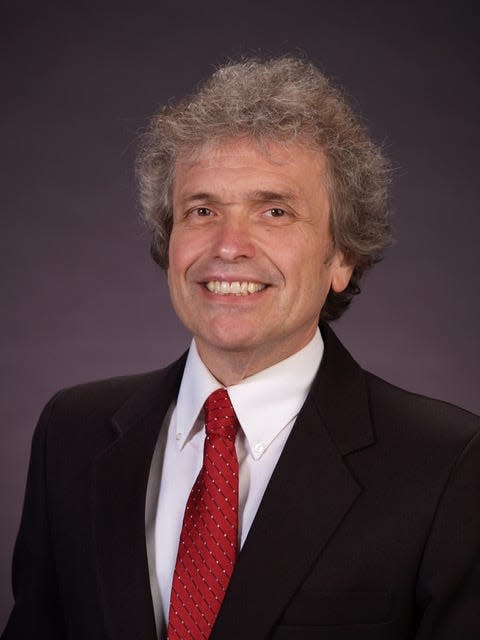
Age: 67
Occupation: Retired educator
Highest education level: Master's in educational administration
Relevant experience: 38 years as a teacher and administrator in the MPSD
Kathy Willis
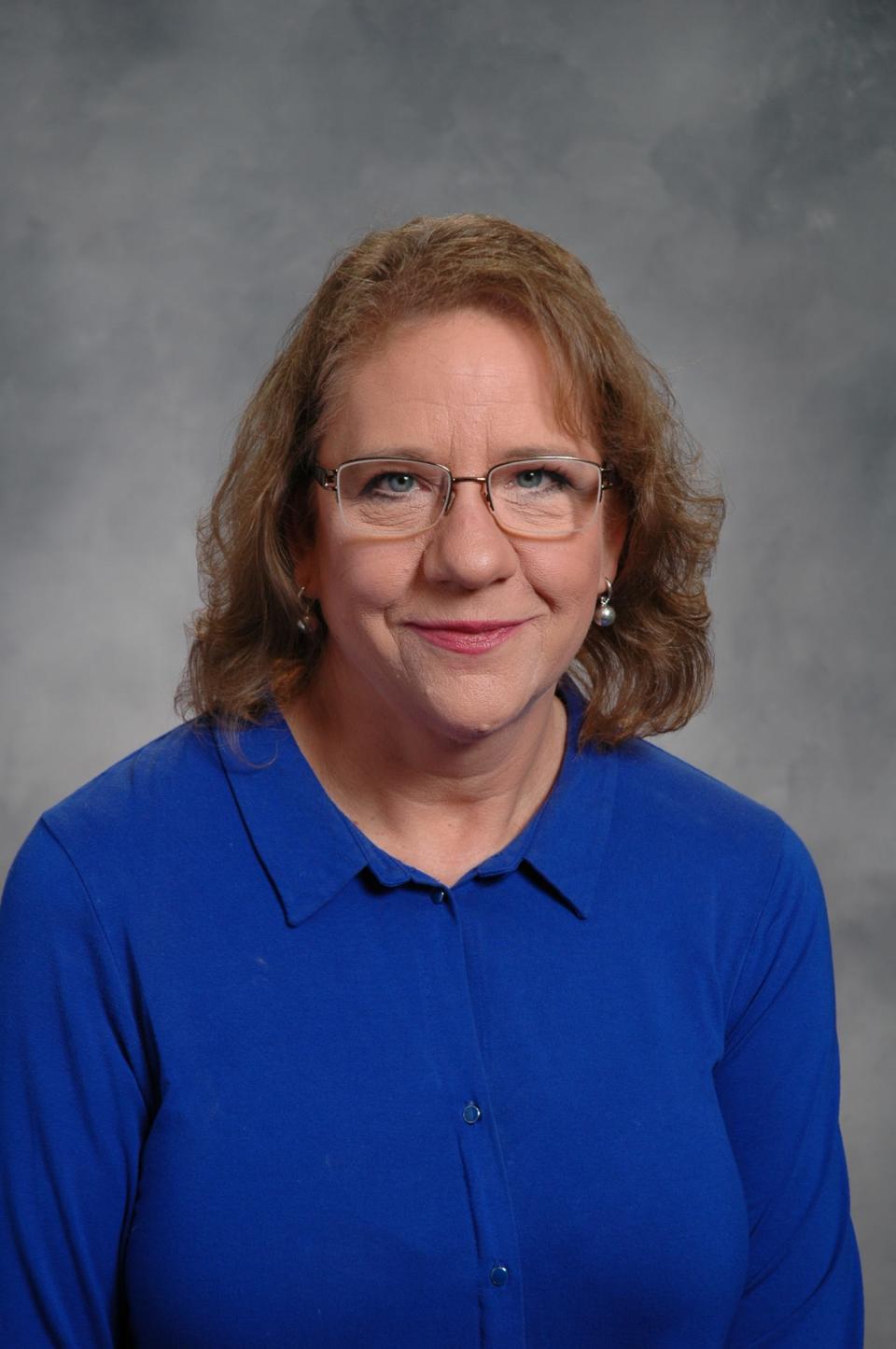
Age: 59
Occupation: Former substitute teacher
Highest education level: Bachelor of Arts degree
Relevant experience:
Board treasurer for two years
Chairperson of Budget and Finance Committee, 2021-2022
Chairperson of Curriculum Committee, 2022-2023 (added nine new courses at Lincoln High School, approved Code of Conduct, and completed six policy updates, including phone policy)
MPSD board representative at Wisconsin Association of School Boards convention for three years
Awarded Certificate of Achievement from WASB October 2022
Partnered in creating MPSD’s Comprehensive Superintendent Evaluation
Had a critical role in obtaining third-party exit surveys for staff
Fought for retention of compacted math at middle schools
Strategic plan
Discussed inequitable per pupil funding with state legislators.
Chairperson of Ad-Hoc Student Behavior Advisory Committee since January 2022 (Our committee created the MPSD Code of Conduct and is currently working on reviewing student handbooks to align with both the Code of Conduct and Athletic Code. We receive behavior feedback from staff, parents and students in order to continue monitoring and to assess the progress within our schools.)
Why are you running for office?
Able: I am very concerned about what is happening in our schools. I intended to run for school board when I was done teaching because I want to help improve education across the district. We were once a great place to get an education and to teach. Now, we bribe people to work here and our student performance must improve. We can, and should, be one of the best districts in the state. We owe that to our students and their families.
Braunel: I am running for office because I believe in the work we have done for our district and feel that we still have some things left to do yet. I was a graduate of MPSD and I live and work in this community. I believe this is community service and a chance to make my community better.
Hansen: I am disappointed in the process the Board of Education is using to identify needed change in the MPSD. Every organization can grow and prosper by evaluating itself. However, the elected board needs to work with its community stakeholders, working staff and within state rules and MPSD bylaws.
The transparency promised by the board has not happened. The process creating the assistant superintendent position was done in a manner that is under consideration for open records and open meetings law violations. Hiring administrative positions happened without a true search of qualified state-certified candidates as historically done by the MPSD.
Willis: I am excited about the possibility of continuing my service to the MPSD. There have been a lot of decisions and work from the board in this past year that I am hoping I can see through to implementation. One of those is my work on the Ad-hoc Behavior Committee. We are making great strides in this area, yet there is so much more to be done.
What makes you the better candidate in this race?
Able: I have direct working knowledge of the classroom and instructional curriculum here in the MPSD. I have a proven local record of leadership and being able to publicly tackle tough policy and staffing decisions with reason and respect. Transparency and accountability are more than just buzzwords to me, and I have always worked to keep you informed of what your government is doing. My focus will be on how any decision improves education so we do not lose focus on the district's No. 1 job.
Braunel: I have actually attended the meetings, worked on the issues and met with the parents and students affected by the district. I’m not a former teacher who receives a pension from the district. I’m very forthcoming with where I stand on issues and don’t sugarcoat my responses so that people like me better. My efforts have raised accountability in the district for parents and students to be provided a better education. I’m willing to admit that we have proficiency issues and believe that we shouldn’t be keeping disruptive kids in the classroom.
Hansen: “Self praise stinks” was the favorite phrase my dad used when we were growing up. So this is a tough question to answer. I do not think of myself as better, but I think I have different ideas. My educator experience at each grade level, my administrative work as an assistant/associate principal, and my work with students who learn differently gives me a practical experience others may not have. This does not make me better, but it gives me a perspective of how students of all ages learn, behave and how we can help students who struggle to learn.
Willis: I bring common-sense wisdom and the ability to respect others’ opinions even when I don’t agree. Having served as a substitute teacher for 14 years in the MPSD gives me a greater understanding of classroom management and how a school district works. I’ve also got three years under my belt as a board member now, which gives me an added knowledge base to work from. Mostly, I truly care for the education and well-being of our students and staff.
What are the two biggest challenges for the school board right now, and how would you overcome them?
Able: The MPSD must improve student behavior and performance. I suspect the two are related. Students need a safe, sane atmosphere to attend well and teachers need it to teach productively. We can't improve performance without better schoolwide behavior, and we can't improve behavior without explicit guidelines that are consistently and effectively enforced. We also cannot get better instructional outcomes from our teachers without explicitly stating what we expect students to learn and do. Both behavioral and educational expectations should be available to anyone on the district website.
Braunel: One of the biggest challenges we remain focused on are our proficiency levels and behavioral issues. We’ve put forward a school reform model that has proven results in boosting proficiency levels for our students with similar demographics and challenges. Currently, our students have a 30% proficiency level and are below the state average in every single subject for proficiency. Our behavioral issues are also a challenge. We have put together a Code of Conduct Policy that gives clear direction on how to face the behavioral challenges of our district. Disruptive children should not remain in the classroom to affect the learning of the other children.
Hansen: Budget is No. 1. The state funding formula has caused difficulties for the MPSD. It is hard to explain in 100 words, but our effective but frugal past penalized us when the formula changed. Fix? Pass the current operating referendum and find ways to make MPSD a destination district. Each new student adds money to the budget.
Retaining and hiring staff is two. Current changes influenced decisions of early retirement, transferring to other employment and leaving the profession. Fix? Listen to concerns of the employees, value staff input, use the expertise of people who teach and keep the buildings running.
Willis: One, disruptive student behavior. Behavior issues lead to fewer learning opportunities for everyone. The Ad-Hoc Behavior Committee that I lead is continuously discussing and trying to find ways to improve disruptive behavior. We have successfully completed the Code of Conduct and adopted it this school year. This work continues.
Two, achievement. Many things have affected student learning, such as COVID-19, curriculum and, once again, behavior. While our students continue to learn, we need to find ways to increase learning and student engagement. I would like to see more parent involvement in our schools again, more volunteering and mentoring. Our students could use more support now than ever before. We have the curriculum and great teachers, but it takes a community!
What are your thoughts on the recent change to the Success for All curriculum, which is currently planned to be implemented in the 2023 school year?
Able: If it is implemented like the last literacy curriculum, I expect it to work just as well. The district spends too much time and money chasing gimmicks in education. When something doesn’t work, they shift the blame with nonsense about "fidelity." We should listen to our teachers and also clearly to them what is to be covered by subject and grade level. Students who are struggling significantly should be where we focus our intervention resources to help them reach grade level. This approach should also involve the family of the student.
Braunel: One of the takeaways that the teachers we sent to the schools who had Success for All was that they noticed that the kids were more engaged and less disruptive. I spent a great deal of time investigating this, our staff spent a great deal of time investigating this, and I am excited for it. There will be implementation challenges. We sent 50 staff to schools that were using this so that they could see firsthand what we were looking at doing and asked them to give a report. The report was overwhelmingly positive and it was very comforting to hear such excitement for the program by those who weren’t always in favor of it.
Hansen: I believe there were better choices for our low-achieving students. Few, if any, Wisconsin school districts use the program. Why we did not find a successful area reading program and implement it? It costs less to travel in state than fly across the country. That said, for the students in the district, I hope it is successful. We will need to evaluate the program openly and honestly for effectiveness.
Willis: SFA is a whole school reform program. It will include many changes, yet much of the program will use curriculum and systems that we are already using. I’m eager for the 90 minutes of reading time that it provides. We learn to read so that we read to learn. I can only imagine that this will bring a rise in achievement in all areas. I’m excited about the additional professional development and collaboration time for teachers, the four student assessments per year that will allow students to progress at their own pace, and the addition of more pre-K opportunities. SFA will also bring a cohesion to all of our K-8 schools. This is important, especially for those students who move around to different schools.
How should the school board address issues such as low reading scores and poor student behavior?
Able: We should not tolerate either and expect district personnel not to as well. As stated above, quick and consistent enforcement of misbehavior will quickly realign how students act. The same should be true of academic performance. Outside of students with significant learning challenges, we should expect (and have a goal of) all students performing at grade level. The district needs to look at its willingness to ignore performance in favor of "social promotion."
Braunel: What should be understood here is it’s not just reading scores. We currently have proficiency levels below state average in math, science and social studies, too. Our assistant superintendent gave a presentation recently that highlighted this. Unacceptable! Some individuals over the past two years have tried to say it’s just one test, or make excuses for these proficiency issues. You can, and see the issue has been in existence for nearly a decade. Ignoring and dismissing a problem won’t solve it. When you can look up MPSD’s Department of Public Instruction report card or go to Public School Review, you see what I am talking about.
Hansen: Wisconsin public schools rank among the top 10 in our nation in most articles from educational journals and non-partisan agencies. We have a talented teaching staff, so use educators who teach to examine and choose successful programs. Find successful reading programs in the state, and learning from successful programs around us will result in high test scores in our district.
Inappropriate behaviors will happen. However, after consequences or removal if necessary, MPSD should provide staff and develop programs to modify disruptive behavior or create alternative programing for students to find success. We had successful programs that should be reinstated.
Willis: According to the Department of Public Instruction, our reading scores have been declining steadily for six years. The first step in addressing any issue is to recognize and acknowledge that there is one. We’ve done that. Next is to decide what steps are going to be taken toward resolution. The combination of our Code of Conduct and following supports, along with the implementation of SFA, addresses both behavior and all achievement at the same time. It’s going to take a lot of time, hard work and commitment on all stakeholders' parts, but I believe it can, and will, be done.
What is your vision for education in this community?
Able: As stated earlier, we should be one of the best places to get an education in the state. Next year, the district will pay out between $2 million and $2.5 million in vouchers for students whose families don’t want them going to our public schools. How much stronger would we be if we were everyone’s first choice for their students? A proud product of public schools, I know this is not a fantasy, but we will need to expect the best of everyone: our students, our teachers, our staff, our administrators and our board.
Braunel: I share the vision that the superintendent has. I believe we can be the top-performing school district in the state. We’ve been working many hours and on many different things to help set the district up for success. This due to our Behavior Code of Conduct, restructuring Central Office, School Reform Program, increasing professional development, strategic plan, competitive wage review, increased superintendent evaluations, curriculum mapping, finding new revenue sources and savings, selling property we don’t need and increased transparency of our activity. Some of these issues have been going on for a very long time and won’t be solved overnight.
Hansen: Clear the politics from the schools. Education is local, so it should be driven by student needs and not by the national partisan political dialog.
All students should be seen as equal in all aspects of education and participation within our district. Inclusion of all students is a must. We cannot be successful if we leave some students behind. Educational programing must reach all levels of educational need.
Quality educational classes for all levels of student. We need classes that stimulate discussion, thought and understanding of opinions expressed by others. Can we teach students to respect all points of view?
Willis: This often-asked question is difficult to answer because when I think of what my vision would be, it’s really what my hope is for our district. My hope is that we, as a community, can set aside differences and embrace the common goal of providing the best, inspiring education possible for our kids. My vision is walking down the hallway of any school in our district to hear and see engaged students excited to learn and teachers excited to teach. That’s the hope and vision I hold onto.
What are your thoughts on the current budget for the school district?
Able: Does the district think there is no problem that can't be solved by throwing money at it? "More money equals better solutions" is a bad philosophy. Undeniably, education is not cheap, but a poorly run district costs more and accomplishes less. You have seen that here in Manitowoc. The district’s current problems have us throwing bad money after good without improvement. This becomes a vicious cycle. I worry that we have begun to budget for mismanagement rather than manage for responsible budgeting. Again, we can improve our bottom line by more than $2 million a year just by being the best schools around.
Braunel: We have continually been looking for efficiencies. We’ve finished up a major overhaul for business software that’ll give us better insight and a clear path to savings. In the most recent finance meeting, we passed an energy-saving initiative that’ll save us money. March 22, the superintendent, Matt Spaulding and myself lobbied the state in Madison to increase our revenue as we’re currently bottom 4% of the state for per pupil funding. We asked for more revenue for special education. The portion paid by the state has been cut in half over the years. These need to be funded and must be paid for. So, either our district pays for it via referendum or state does.
Hansen: The state formula for school budgets is not fair to the MPSD. However, a quick fix from the state Legislature is unlikely. Thus, we must be honest, frugal and wise with tax money to gain referendum support from the community.
Recruiting more students with outstanding programs is also a possible fix, but that takes money to create the programs. We have some current unique outstanding programing, however we do not have any formal recruiting programs. More area schools are exploring this idea as the number of school-age children declines. More students increases state funding. I believe this is worth exploring.
Willis: We have always been a conservative-spending school district and that includes the current budget. One of our greatest issues is funding. The state set a funding equation in 1993 that still exists today. It was based on a district’s spending at that time. Since we have always notoriously been a conservative-spending district, it has continued to hurt us. Our district receives approximately $14,000 per student while some neighboring Manitowoc County districts receive upwards of $18,000 per student. This inequity in funding is the reason we absolutely need to pass the referendum. If we want to stay competitive for both students and staff, we need to continue to implore our state legislators to make a much-needed change. This past week, I stood before State Sen. Devin Lemahieu and State Rep. Paul Tittl to do just that.
Read more about Manitowoc schools:
New committee structure: 3 takeaways from Manitowoc school board's proposed plan to restructure committees
New MPSD curriculum: Manitowoc school district's new curriculum will cost taxpayers $1.9M over six years and change how and what teachers teach. Here’s what to know.
Administrative restructuring: Manitowoc Public School District is shaking up its central office, eliminating director cpositions and creating new roles
Code of conduct: How a new code of conduct in Manitowoc Public School District aims to change student behavior likened to ‘Lord of the Flies’
Contact reporter Alisa Schafer at aschafer@gannett.com or follow her on Twitter at @AlisaMSchafer.
This article originally appeared on Manitowoc Herald Times Reporter: Manitowoc school board candidates on curriculum, student behavior

